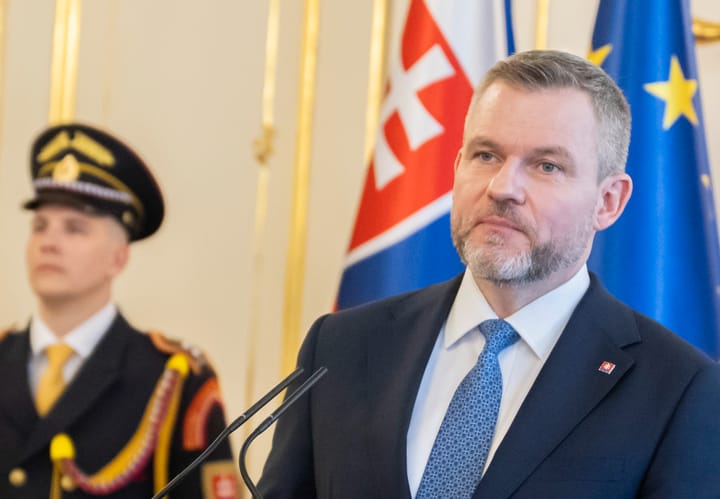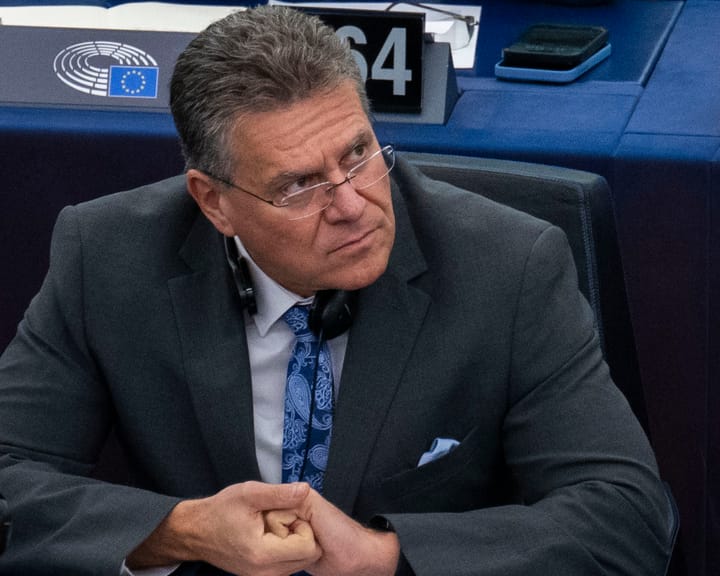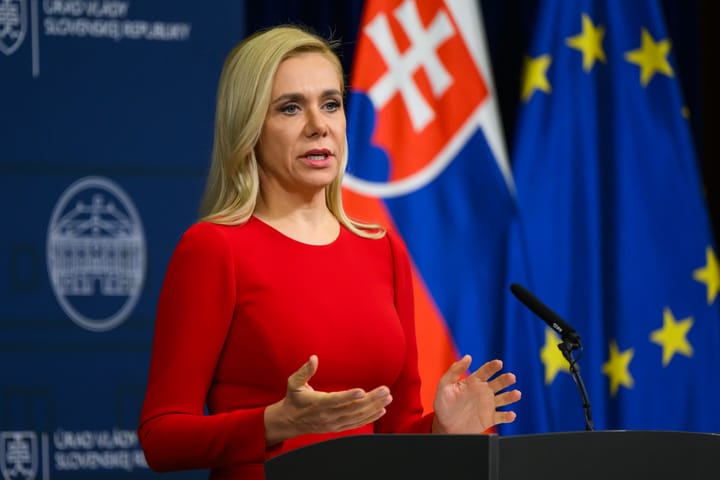UN stumbles over climate crisis and conflict resolution
The 78th session of the United Nations General Assembly is drawing to a close. Tackling the effects of climate change and resolving military conflicts in Europe and beyond have emerged as bottlenecks.
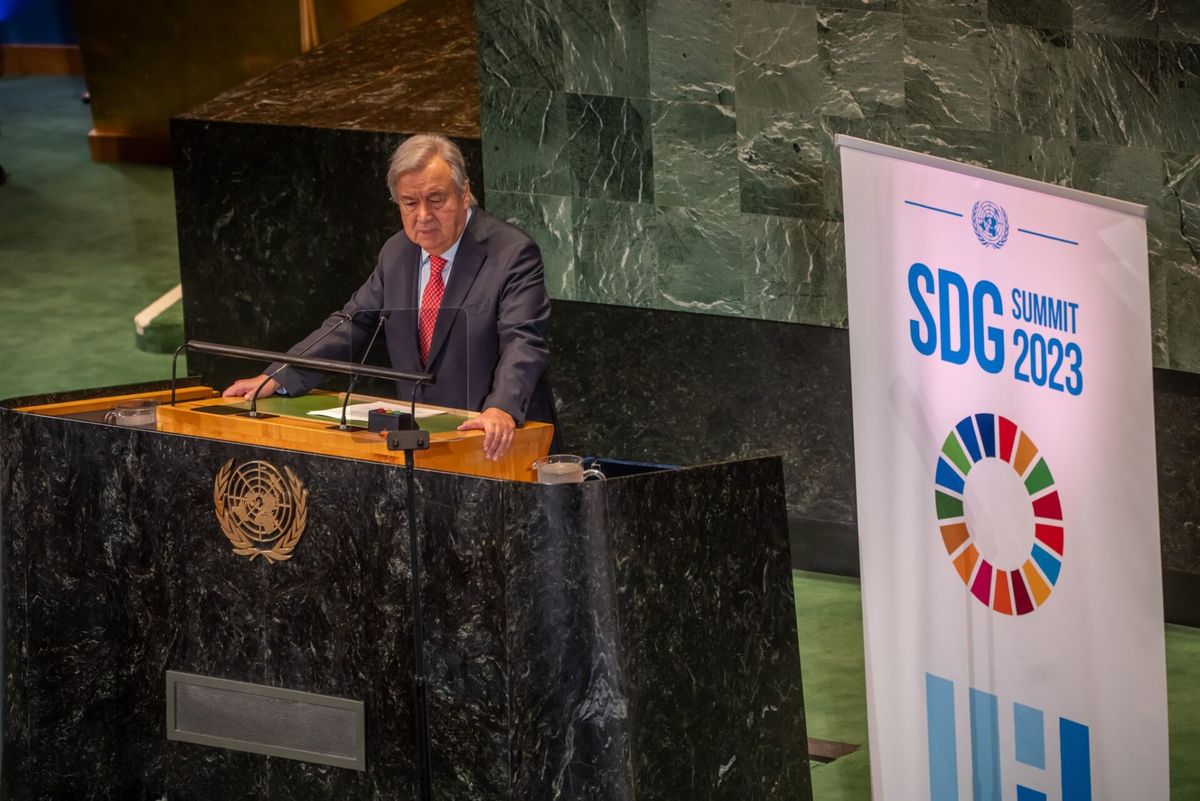
by AFP, Agerpres, ANSA, BTA, dpa, EFE, HINA, STA, TASR | 26.Sep 2023 | Key Story
EU and world leaders gathered in New York for the 78th session of the UN General Assembly. Much of the focus during the gathering was on tackling the effects of climate change, conflict resolution and the implementation of the UN’s 2030 Sustainable Development Goals (SDGs).
While the EU is pushing forward its climate ambitions, oil and gas companies have been slowing down their decarbonisation commitments – by paying out handsome dividends to shareholders and lobbying governments to reverse climate commitments. Asked whether to welcome them at the two-week talks in Dubai starting in late November, the UN’s former climate chief, Christiana Figueres, said “it should depend on whether they are there to help and to accelerate decarbonisation,” or “whether they are literally operating against those objectives.”
Leaders also addressed the need for resolution of several military conflicts. For the EU and its member states, Russia’s aggression against Ukraine and the conflict between Azerbaijan and Armenia over Nagorno-Karabakh were high on the agenda. The fact that Russia has veto power at the UN’s Security Council has proved to be a major obstacle to resolution.
While the UN appears to be falling short on climate change efforts and conflict resolution, EU countries demonstrated some positive progress with regard to the implementation of the SDGs.
All eyes on climate change?
UN Secretary-General Antonio Guterres told world leaders the climate crisis had “opened the gates to hell”. Guterres had billed last week’s “Climate Ambition Summit” as a “no-nonsense” forum, making clear that only leaders who had made concrete plans to achieve net zero greenhouse emissions would be invited.
The event is the biggest climate summit in New York since 2019, when Greta Thunberg stunned the world with her “How Dare You” speech before the UN. Anger has been building among climate activists, particularly younger people, who turned out in thousands recently for the “March to End Fossil Fuels” in New York.
The summit happened just weeks ahead of the COP28 climate talks in the United Arab Emirates. The goals at that include tripling renewable energy by 2030, and ending the generation of fossil fuel energy that isn’t “abated” by carbon capture technology by 2050.
In his opening address, UN Secretary-General Antonio Guterres evoked 2023’s “horrendous heat” and “historic fires” but stressed that “we can still limit the rise in global temperature to 1.5 degrees”, referring to the target seen as needed to avoid long-term climate catastrophe. After receiving more than 100 applications to take part, the UN released a list of 41 speakers which did not include China, the United States, the United Kingdom, Japan, or India.
“Humanity has opened the gates to hell.”Antonio Guterres, Secretary-General of the United Nations
“The European Union has set ambitious emission reduction goals for 2030. We want to reduce greenhouse gas emissions by at least 55 percent. And the good news is that we are already on track to overshoot this goal,” said European Commission President Ursula von der Leyen during the Climate Summit on the sidelines of the UN General Assembly. “But similar ambition is needed by other major emitters to ensure that global emissions peak by 2025 and unabated fossil fuels are phased out well before 2050,” she added.
The talks were partly overshadowed by an announcement from Britain – also not present – that it was rolling back the so far agreed policies that would mean achieving its net zero goal. Prime Minister Rishi Sunak announced he was adopting a more “pragmatic” approach to reach net zero carbon emissions by 2050, including pushing back a ban on the sale of cars fully run on fossil fuels and easing energy efficiency targets for rental properties. The moves come as Sunak’s Conservative Party is trailing in the polls behind the Labour opposition amid a cost-of-living crisis.
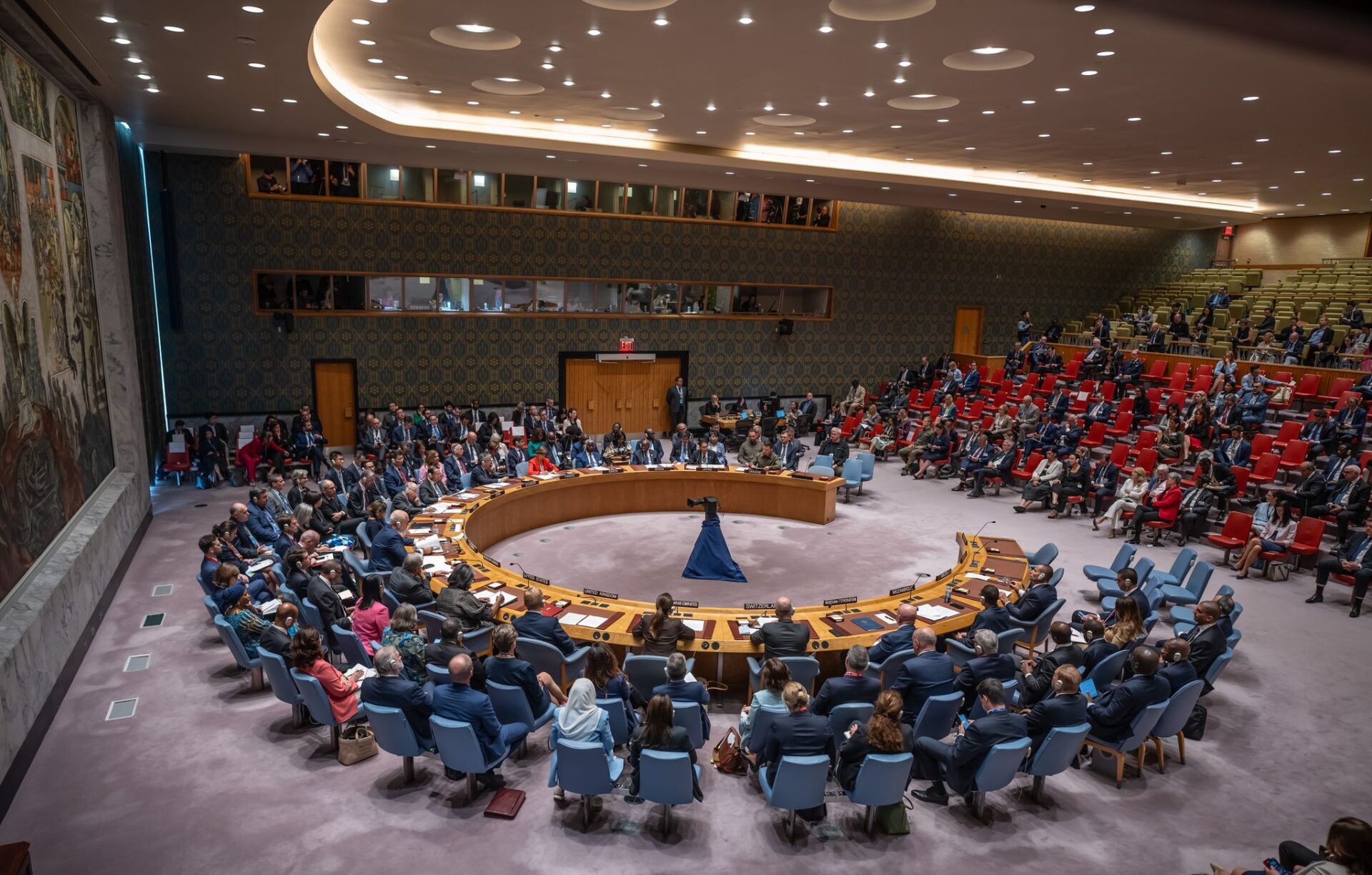
Conflict resolution highlights global divisions
In a high-profile appearance at the UN Security Council, Ukrainian President Volodymyr Zelenskyy lamented the powerlessness of the United Nations at preventing conflict and called for fundamental overhauls of the global body, as Russia’s full-scale invasion of Ukraine is about to move into its 20th month.
“Away with Russia’s veto power.” Zelenskyy challenged Moscow as he opened the UN Security Council meeting devoted to the war in Ukraine on the sidelines of the UN General Assembly. He also criticised the UN for not fulfilling its role and not resolving world conflicts. “It is impossible to stop the war because all actions have the aggressor’s veto,” denounced the Ukrainian leader, for the first time since the invasion sitting in the same room with a Russian leader, Ambassador to the UN, Vasily A. Nebenzya.
“It has been 19 months since a permanent member of the Security Council unleashed a war of aggression against its neighbouring country, violating the principles of the UN Charter and international law”, said Bulgaria’s president Rumen Radev, addressing the UN General Assembly.
“It has been 19 months since a permanent member of the Security Council unleashed a war of aggression against its neighbouring country, violating the principles of the UN Charter and international law.”Rumen Radev, President of Bulgaria
More than 60 countries took part in the Security Council meeting. Zelenskyy called for an expansion of the Security Council with permanent seats for Africa, Asia and Germany. He then relaunched his 10-point peace plan, reiterating as a precondition Russia’s withdrawal and the re-establishment of borders before the 2014 invasion of Crimea.
Poland opposes Germany gaining a permanent seat on the UN Security Council, Polish Defence Minister Mariusz Blaszczak said. There are 193 UN member states in total. Five countries have permanent seats on the Security Council: the US, China, Russia, Britain and France, who can veto all decisions.
Armenian Foreign Minister Ararat Mirzoyan accused the international community of inaction following Azerbaijan’s military operation to take control of the Nagorno-Karabakh region, mainly inhabited by Armenians. Speaking at the United Nations General Debate in New York on Saturday, Mirzoyan called for a UN mission to “monitor and assess the human rights, humanitarian and security situation on the ground”.
Nagorno-Karabakh is in Azerbaijani territory, but the majority of residents are Armenian and control of the region has long been contested between the two ex-Soviet republics. Last Tuesday, the authoritarian-led Azerbaijan launched a military operation to seize the region. Only one day later, the defeated Karabakh Armenians surrendered.
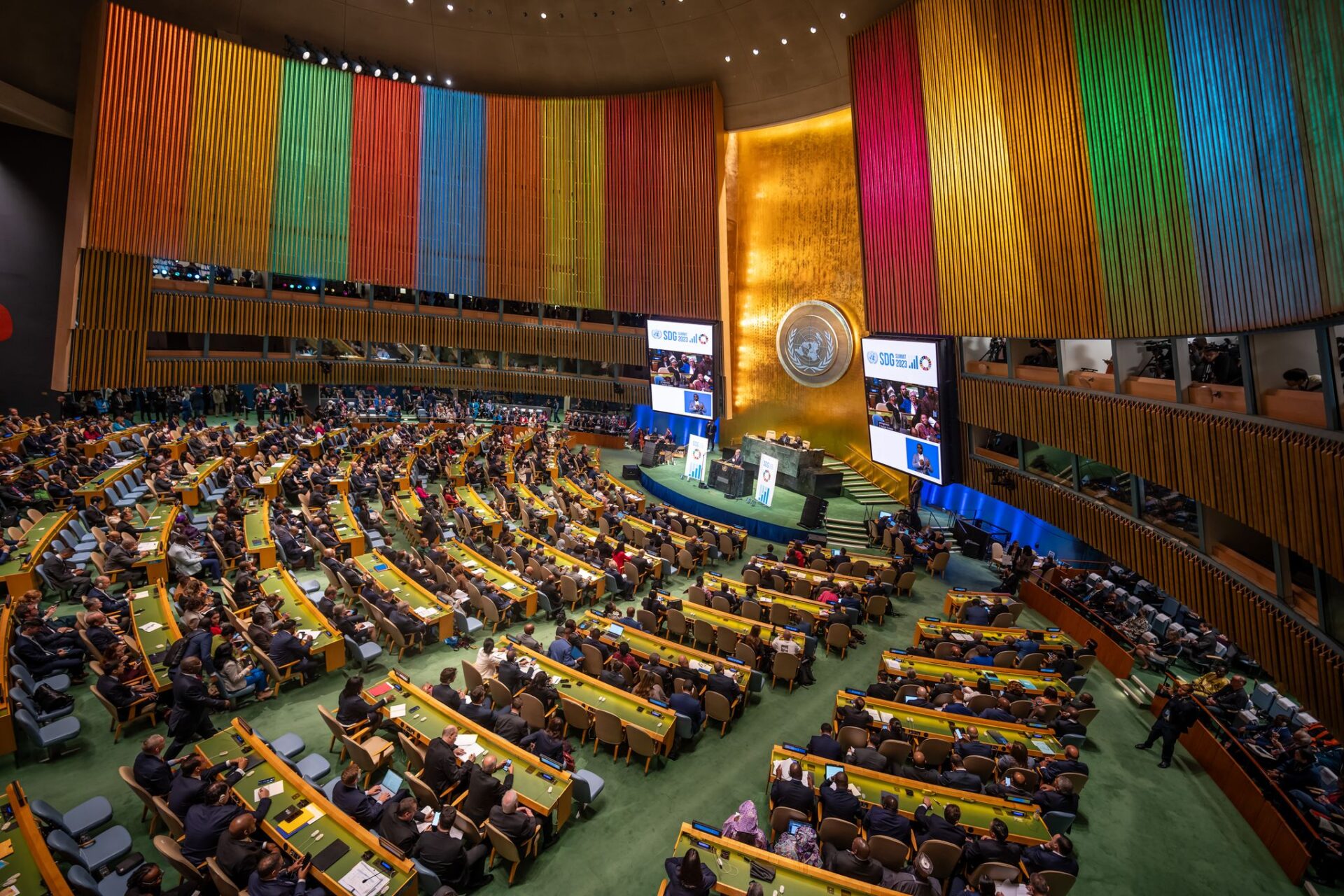
2030 SDGs moving closer
On a more positive note, several EU countries have demonstrated their commitment to achieving the 2030 SDGs and the progress they have made so far.
The 193 member countries of the United Nations have adopted a declaration to reaffirm their commitment to the stalled Sustainable Development Goals (SDG). The text was adopted unanimously, the day before the start of the UN General Assembly’s General Debate, which saw speeches by leaders from across the world.
The 17 Sustainable Development Goals were adopted unanimously by world leaders in 2015, and they serve as guidelines for more global sustainability, equality and prosperity. The goals include eradication of poverty and hunger, improving health and well-being, quality education, gender equality, clean water, affordable and clean energy, decent work and economic growth.
Spain is diligent in the race to achieve the 17 Sustainable Development Goals. It occupies 16th place in the classification drawn up in the 2023 Sustainable Development Report. Despite this, the authors of the classification warn that, for the moment, Spain has not managed to exceed any objective, but it is in the process of doing so, for example, in terms of gender equality, health and well-being, green energy, and cheap and sustainability of towns and cities.
According to the report, Croatia ranks 12th of the 166 evaluated UN members. Croatian President Zoran Milanović said that Croatia was making progress with regard to the green transition and that it planned to increase the share of renewables in electricity consumption to 73.6 percent by 2030.
The President of Slovakia, Zuzana Čaputová, noted that international efforts in the field of meeting Sustainable Development Goals have been partially slowed down by crises such as the COVID-19 pandemic, but this can’t be used as an excuse. She stated that 85 percent of electricity in Slovakia is produced with zero emissions, and the country will use 5 percent of its gross domestic product (GDP) in the next seven years on decarbonising the economy and increasing the use of renewable energy sources.
Romania has already achieved 62 percent of its national targets for the implementation of the 2030 Agenda for Sustainable Development, President Klaus Iohannis said. He mentioned that Romania “has made significant progress on the SDGs related to environmental protection and limiting climate change”, facilitated by strong regional partnerships and by the involvement of multilateral institutions.
Despite this momentum, more needs to be done, as Slovenian President Nataša Pirc Musar argued. She said it was disastrous that the goals were being implemented so slowly. She said things needed to be shifted up a gear if the world is to limit global warming to 1.5 degrees, for example.
***************************************************************************
The News Agency of the Slovak Republic (TASR) is a part of project called the EuropeanNewsroom (ENR). The aim of the project is to strengthen news services from various countries in Europe and to support cooperation between the agencies' international news reporters. The ENR project includes the following agencies: AFP, ANSA, Agerpres, APA, ATA, Belga, BTA, DPA, EFE, Europa Press, FENA, HINA, MIA, STA, Tanjug and TASR. Polish news agency PAP is an associated partner, while the Ukrinform agency is also participating in the project as part of the solidarity shown to Ukraine.

